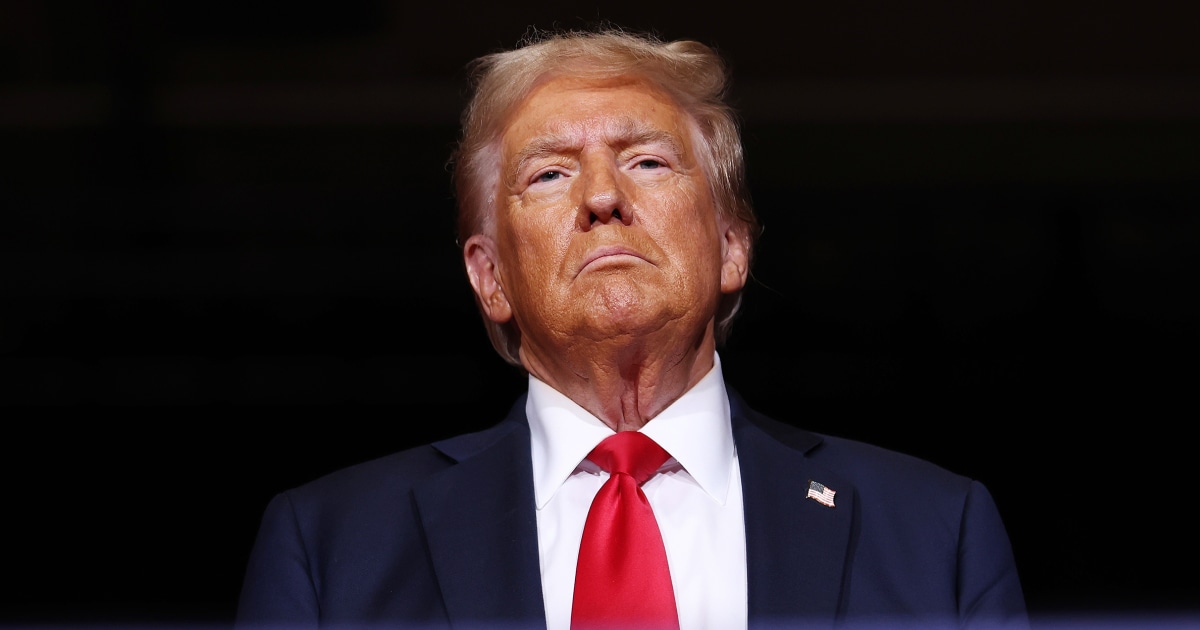WASHINGTON — Republican Presidential candidate Donald Trump on Friday called the judge overseeing the Jan. 6-related federal criminal case against him “the most evil person,” despite threats U.S. District Judge Tanya Chutkan has already faced from his supporters.
Trump also called special counsel Jack Smith, who has faced threats from Trump supporters as well, “a sick puppy” — a term he frequently deploys against figures he dislikes — during a podcast with right-wing media personality Dan Bongino.
Trump slammed the judge for releasing hundreds of pages of documents Friday — most of them heavily redacted — that Smith had submitted in connection with an earlier filing arguing against Trump’s motion to dismiss the case.
The filings released on Friday are heavily redacted and largely include information that was already public. They do show that Smith’s team is relying upon transcripts of interviews and other information disclosed by the House Jan. 6 Committee, which dissolved after Democrats lost the House in 2022.
Trump called the release of the documents “election interference” during his podcast appearance and said it was “a terrible thing, what’s happening. And the judges, this judge is the most evil person.”
“They all said, ‘well, make sure you don’t get Chutkan.’ And who did I get? I got Chutkan. So, you know, they supposedly pick, they pick balls, right?” Trump continued, referring in lottery-like terms to the random selection system used to assign federal judges to cases. “It’s not— I don’t think it works that way, but that’s what they say. That’s the way it’s supposed to be. You pick out of a hat, and that’s the judge.”
In the other federal case brought by Jack Smith, Trump infamously drew one of his own appointees to the bench, Aileen Cannon, who regularly favored Trump in court and ultimately dismissed the entire case, a decision the Justice Department is appealing.
Chutkan’s security detail has noticeably grown since she was assigned the Trump case and targets of Trump’s ire have time and time again been the subject of threats from his fan base.
Last year, a Texas woman was arrested and charged with making racist threats against Chutkan. “You are in our sights, we want to kill you,” Abigail Jo Shry allegedly said, according to federal authorities. “If Trump doesn’t get elected in 2024, we are coming to kill you, so tread lightly, b—-.”
Shry has not entered a plea in the case, but her court docket shows she has undergone substance abuse treatment and her trial is set for next month.
Earlier this year, Chutkan was a victim of a separate “swatting” call, meaning a false report to law enforcement that triggers a police response to the target’s home.
Chutkan began overseeing the Trump case following his first federal indictment in the Jan. 6-related case in August 2023 and made clear from the beginning that Trump’s 2024 presidential candidacy would have no impact on her handling of the case. Trump’s team then engaged in a delay strategy, which paid off; their argument over presidential immunity made its way up to the Supreme Court, which ruled out the use of some of Smith’s evidence and kicked back the case until after the election.
When Chutkan got the case back from the Supreme Court, she set about implementing a schedule to determine outgoing issues, including settling what types of evidence could be used following the high court’s ruling. As part of that litigation, and in response to an argument from Trump’s lawyers that the indictment did not allege that Trump was not responsible for the Jan. 6 attack, Smith’s team said that Trump did, in their view, bear responsibility for the attack. On Friday, Chutkan unsealed redacted appendixes associated with Smith’s argument, which upset Trump, he said, because the election is less than three weeks away.
“What judge would do that?” Trump said on Bongino’s podcast. “Forget about deranged Jack Smith. You know, judge is supposed to keep— what judge would say ‘We’re going to release something, you know, a couple of days before.’”
Trump is facing four charges in the Washington-based case — conspiracy to defraud the United States, conspiracy to obstruct an official proceeding, obstruction of and attempt to obstruct an official proceeding and conspiracy against rights — to which he has pleaded not guilty.
One key to Smith’s case is his contention that Trump knew the lies he spread to his followers about the 2020 election were, in fact, false. Earlier in the week, Chutkan issued a ruling denying most of Trump’s requests for additional discovery, calling an argument from Trump’s team that he might’ve been worried about foreign election interference — instead of the false claims of election fraud in majority-nonwhite cities that he was publicly spreading at the time — “strained.”

Leave a Reply